
One Less Thing to Remember
Parentzia helps you keep everything about your kids organized—without juggling apps or mental notes.
Join the early access list and see how calm organization feels.

Parentzia helps you keep everything about your kids organized—without juggling apps or mental notes.
Join the early access list and see how calm organization feels.
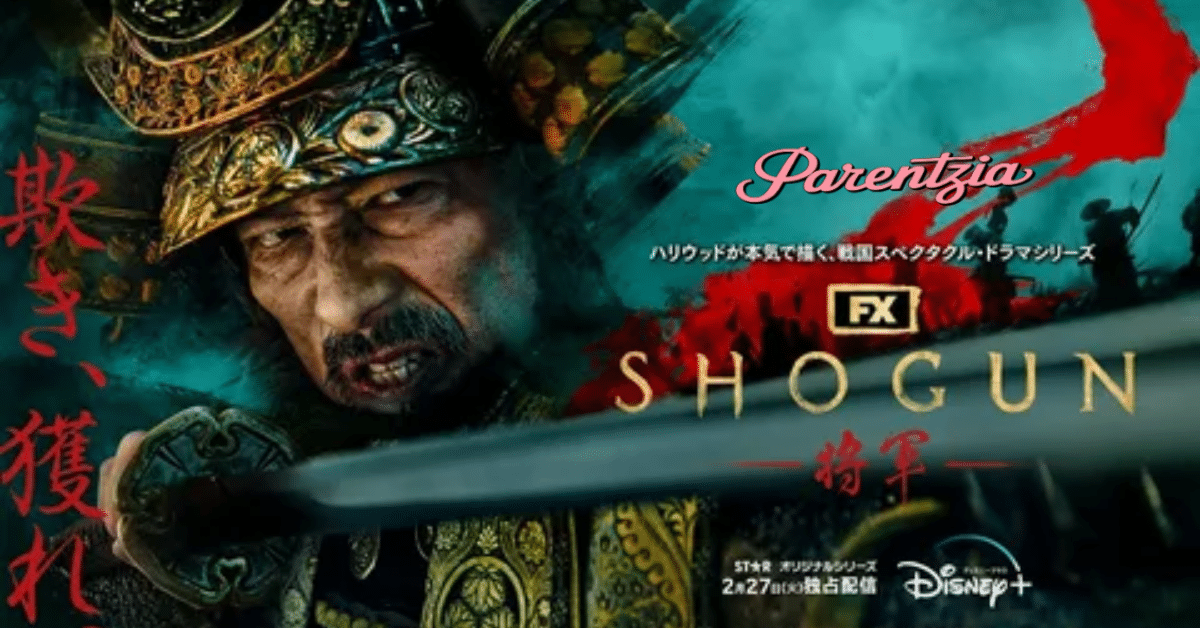
The highly anticipated Shōgun 2024 TV show brings James Clavell’s epic tale to life, combining breathtaking visuals, intense storytelling, and deep historical context. Directed by notable talents like Frederick E.O. Toye and Hiromi Kamata, and starring an exceptional cast including Anna Sawai, Cosmo Jarvis, Tadanobu Asano, and Sanada Hiroyuki, the series offers a fresh perspective on the classic narrative. But with its mature themes, graphic violence, and depictions of samurai culture, parents may wonder if it’s suitable for younger viewers.
This parent guide delves into everything families need to know about the Shōgun TV series, including its age rating TV-MA, content analysis, and historical significance.
Set during the Sengoku Jidai (Warring States Period) of Japanese history, Shōgun recounts the gripping tale of John Blackthorne, an English navigator who becomes entangled in the complex world of samurai warriors, feudal politics, and cultural conflict. The series explores themes of honor, survival, and cultural adaptation, offering an immersive look at one of Japan’s most turbulent eras.
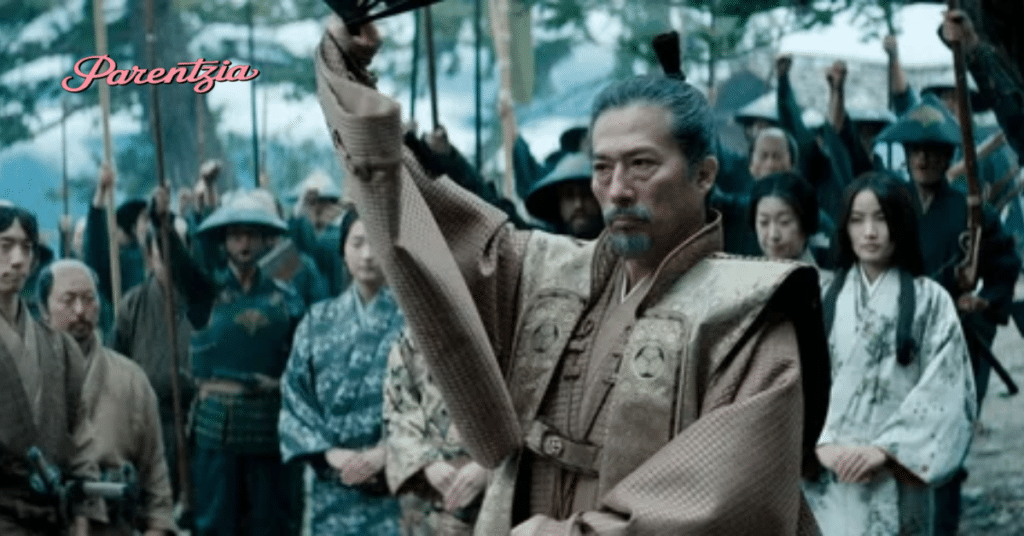
The 1980 miniseries adaptation of Shōgun won multiple Emmy awards, cementing its status as a classic. The modernized story in the 2024 adaptation retains the novel’s core while incorporating advanced CGI for epic battle scenes and authentic recreations of feudal Japan.
You might also like “Frozen 2 Movie Review: Is It Safe for Kids?”
The series is officially rated TV-MA (17+ age rating) due to its intense content. Here’s why:
| Category | Details |
| Violence | Samurai battles, brutal combat scenes, and ritual suicide (seppuku). |
| Gore | Graphic violence with realistic depictions of war injuries and death. |
| Nudity | Occasional scenes of explicit sexual content and cultural nudity. |
| Sexual Content | Includes consensual intimacy and rape themes. |
| Substance Use | Alcohol and traditional Japanese substances shown. |
| Strong Language | Frequent use of profanity in multiple languages. |
Parents should be aware that this historical drama doesn’t shy away from portraying the harsh realities of feudal Japan, making it unsuitable for younger audiences.
The Shōgun TV series delivers intense violence, reflecting the brutal nature of the Sengoku period.
Parents should prepare for the emotional impact of these scenes, as they’re central to the story’s themes of honor and survival.
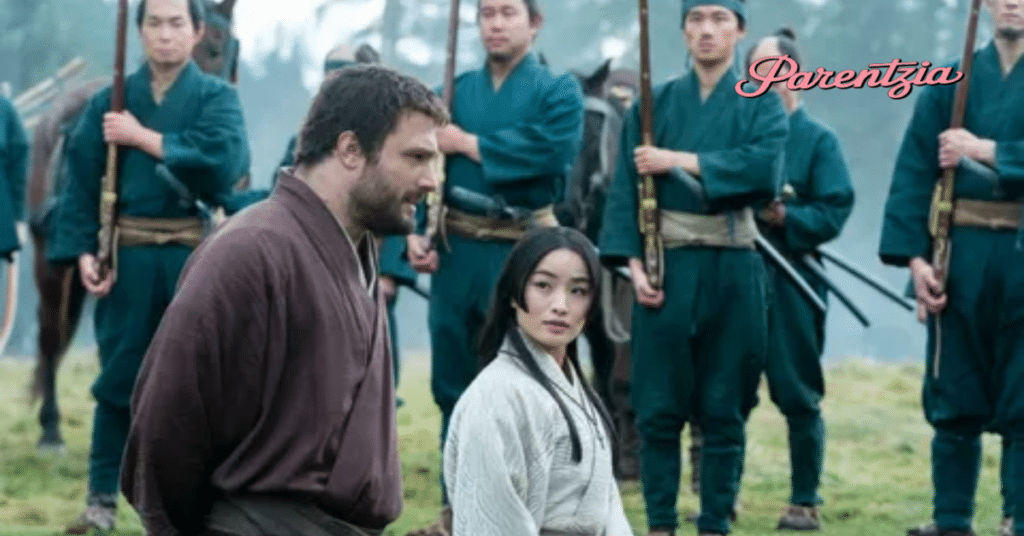
The series features explicit sexual content, including:
While these elements contribute to the narrative, they are unsuitable for younger viewers.
Alcohol consumption is frequently shown, as sake and other drinks play a role in Japanese customs. Traditional substances, though historically accurate, are portrayed in moderation.
Strong language is used sparingly but effectively, reflecting tension and character dynamics. Historical insults and curses in English and Japanese add authenticity.
One of Shōgun’s greatest strengths lies in its commitment to historical accuracy:
For teens and adults interested in history, this Japanese period drama offers valuable insights.
Despite its mature content, Shōgun conveys important messages:
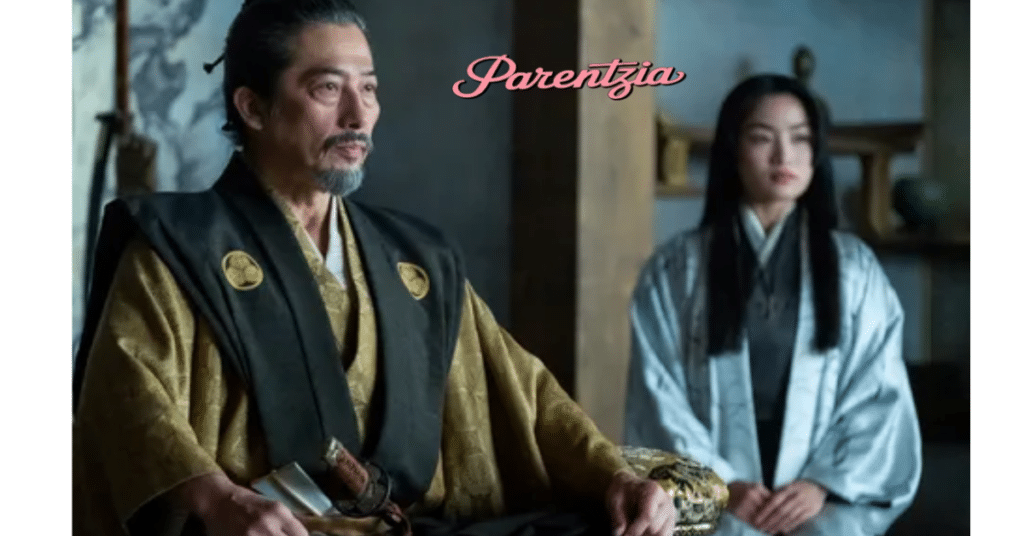
With CGI enhancing massive war scenes, Shōgun delivers a cinematic experience:
Here’s a quick guide for parents:
| Age Group | Recommendation |
| Under 14 | Not recommended due to intense violence and mature themes. |
| 14–17 | Suitable for mature teens with parental guidance, especially for historical and cultural context. |
| 18+ | Fully appropriate for adults seeking a rich historical drama experience. |
Tips for discussion:
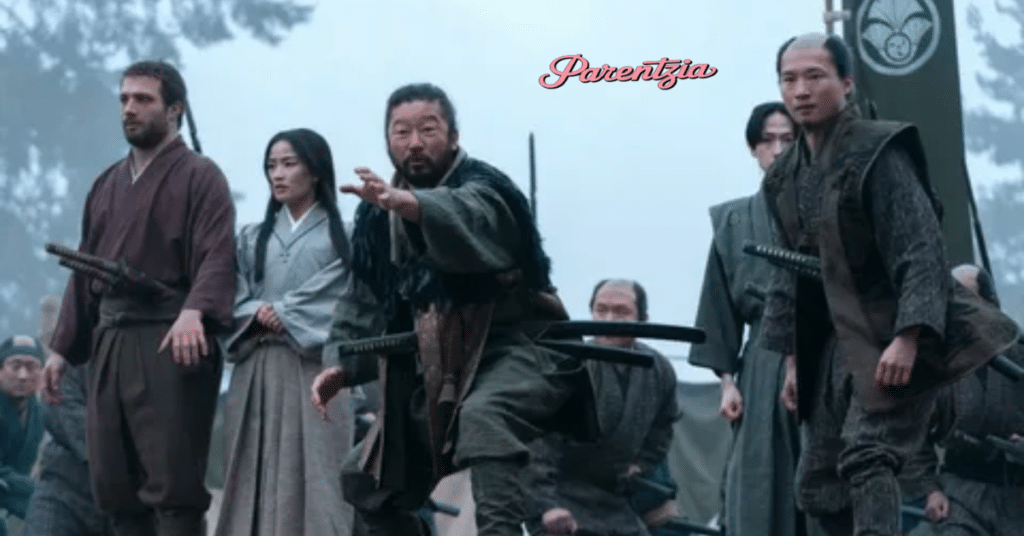
Shōgun (2024) stands out as a masterpiece of historical adaptation, blending gripping storytelling with stunning visuals. Directed by Frederick E.O. Toye and Hiromi Kamata, with standout performances by Anna Sawai, Cosmo Jarvis, and Tadanobu Asano, it’s a must-watch for fans of samurai warriors and historical fiction.
However, its mature themes and intense violence mean it’s best suited for older audiences. This parent guide ensures families can make informed decisions about this modern TV show.